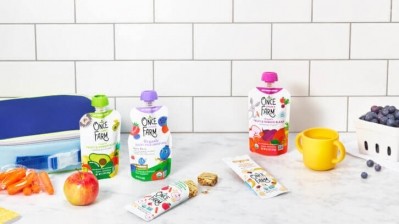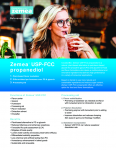USDA finalizes modern WIC program, secures additional $1bn in funding

The update finalizes changes FNS proposed in November 2022 to align with leading nutrition science and better ensure equitable access to healthy foods for participants across critical life stages.
The revisions—backed by recommendations from the National Academies of Science, Engineering and Medicine (NASEM) and the Dietary Guidelines for Americans, 2020-2025—will expand nutrition security and access for the program’s prescribed foods and beverages geared towards maternal and child health.
“WIC has a half-century track record of caring for young families. USDA and the Biden-Harris Administration are committed to ensuring that moms, babies and young children continue to thrive through WIC. These participant-centered changes will strengthen WIC by ensuring the foods participants receive reflect the nutrition science to support healthy eating and the brightest futures,” Tom Vilsack, USDA secretary, shared in a statement.
The new WIC food packages will provide increased food amounts and varieties, including infant formulas and a permanent increase of four times the fruit and vegetable amounts compared to previous years’ food packages, according to FNS.
To cover the increase in produce, the Biden-Harris administration earmarked an additional $1bn for WIC funding, bringing the total to $7bn.
Additional updates implement an expanded dietary guidance that reflect individual and cultural preferences by including whole grain options like quinoa, blue cornmeal and teff. The Dietary Guidelines Advisory Committee’s subcommittee Health Equity Working Group incorporated nutritional recommendations from a health equity perspective to ensure the Dietary Guidelines of America considers diverse racial, ethnic, socio economic and cultural factors.
The revisions also provide more flexibility and convenience for products within the dairy and non-dairy categories, including plant-based options and lactose-free milk.
The changes also increase flexibility around infant formula by creating a separate food package for mothers who partially breastfeed "so that breastfeeding is not an all or nothing choice when prescribing food packages," according to FNS.
Canned fish and canned beans will be more accessible in more food packages, in addition to dried beans.
According to FNS, WIC state agencies have two years to implement these revisions.
“For 6.6m moms, babies and young children who participate in WIC – and the millions more eligible to participate – these improvements to our food packages have the potential to make positive, life-long impacts on health and well-being,” said Cindy Long, administrator, FNS.
Sugar Association argues that added sugar limit may prevent access to nutrient-dense foods, incentivize low- and no-calorie sweeteners
The trade association commended the agency’s recommendations for a nutritionally balanced and flexible program, however, argue that the limitation of added sugars (10% of total calories) on individual products could limit access to nutrient-dense foods, and potentially incentivize the use of low- and no-calorie sweeteners.
The association argued a reduction in added sugar consumption since its peak in 1999 did not correlate with a reduction in obesity rates. Added sugar consumption declined by 18%, while child and adult obesity increased by 44% and 37%, respectively. It connected this increase to the uptick in non-sugar sweeteners in the American diet.
“Added sugar limits on individual foods ... contradict scientific evidence showing that grains and flavored dairy sweetened with sugar are not associated with adiposity and, in fact, are associated with improved nutrient adequacy,” Courtney Gaine, president and CEO, Sugar Association shared in a recent statement.
The Sugar Association, along with the World Health Organization and the American Academy of Pediatrics, argue a reliance on artificial sweeteners could pose health concerns particularly among children, citing a 300% growth in five years of reformulations in low- and no-calorie sweeteners.
“Going forward, the US Department of Agriculture should ensure adequate intake of nutrient dense foods and limit the use of low- and no-calorie sweeteners, which are likely to be further incentivized by this rule,” Gaine added.


![[Video] USDA working to modernize WIC access for over six million eligible families](/var/wrbm_gb_food_pharma/storage/images/_aliases/wrbm_medium/publications/food-beverage-nutrition/foodnavigator-usa.com/article/2023/11/30/video-usda-working-to-modernize-wic-access-for-over-six-million-eligible-families/16976304-1-eng-GB/Video-USDA-working-to-modernize-WIC-access-for-over-six-million-eligible-families.jpg)












